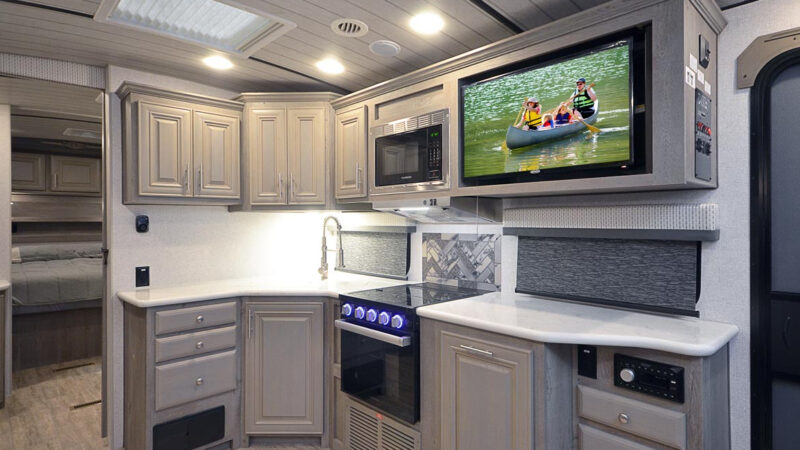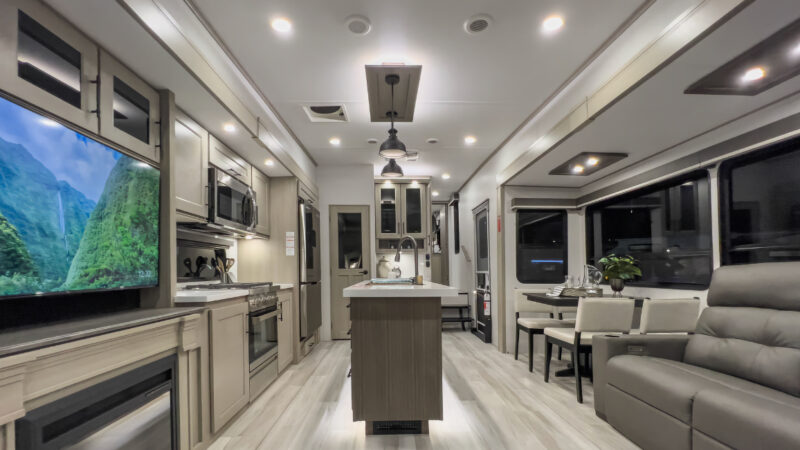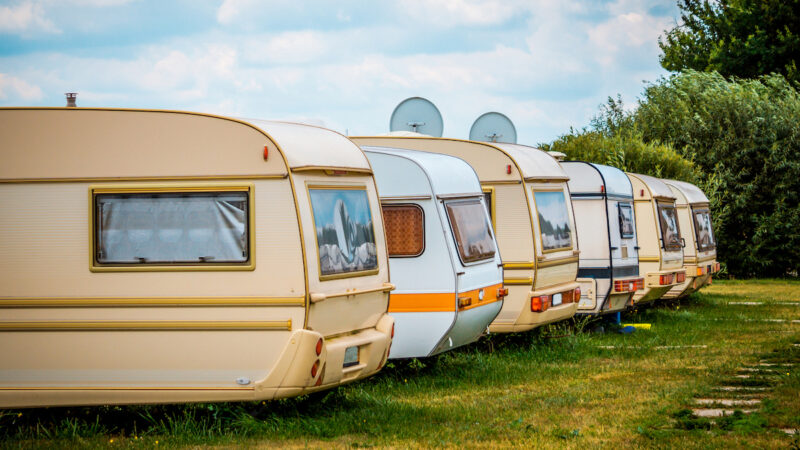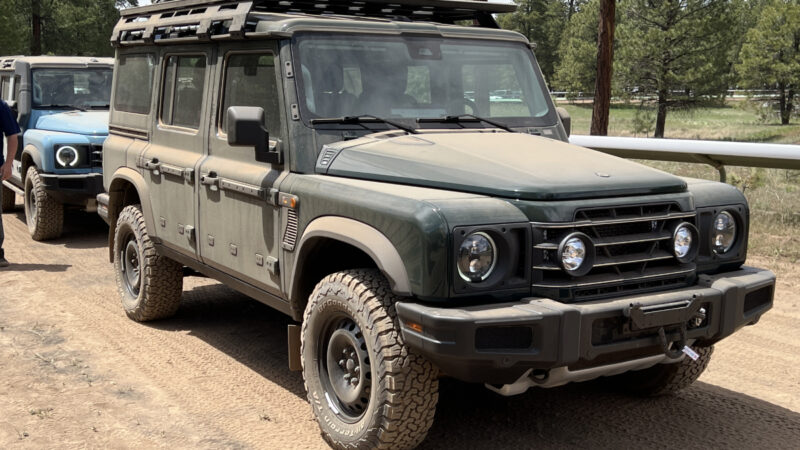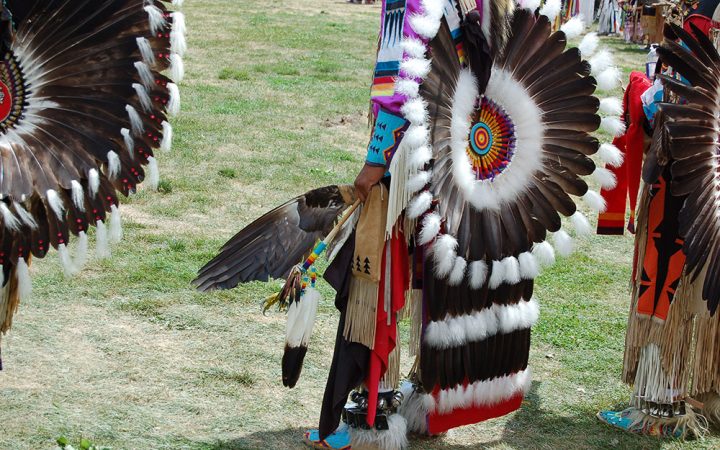11 Camping Tips For This Summer
You’ve survived the winter, and while movie and game nights were fun, the call of the great outdoors is irresistible. It’s time to swap the sofa and screens for camping hammocks and towering trees. Ready to disconnect, relax, and dive into nature? Whether you’re heading to your local campground or checking off another national park, here are 11 tips to ensure you and your crew are well-prepared for the grand adventure ahead!
1. Book your campsite ahead of time.
When it comes to booking your campsite, you can book a campsite at national parks up to seven months in advance. If you’re going the route of a private campsite, then it will vary, but most will adhere to the six-month rule. If the location is in high demand, then they will often open further out than that.
Depending on whether you are planning a weekday or a weekend trip, you’ll need to book your campsite sooner rather than later. If you’re throwing together a spur-of-the-moment trip, then you may still score a spot, but be sure you have a plan B for where you want to go if you wind up striking out.
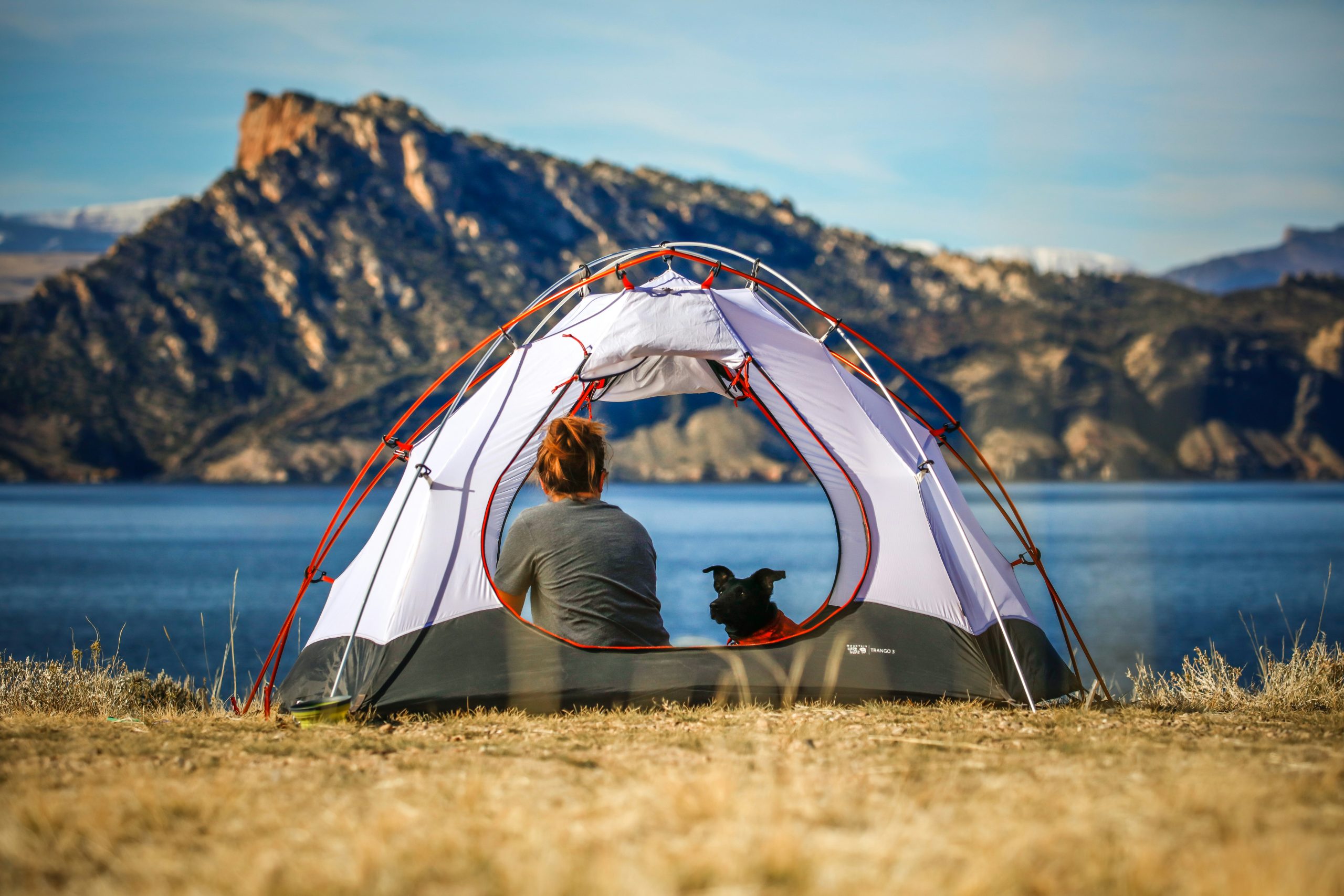
2. Choose the right campsite.
The campsite can make or break the trip! First, you need to decide what kind of campsite will best serve your trip’s vibe. Will you be tent camping? You’ll want to ensure your site has a level spot for you to set up camp. If you’re RVing, you’ll want to check the site details: Is there a full hook-up? Is it a pull-through site? If you don’t have an RV and you don’t want to mess with a tent, look into options like glamping or cabin rentals!
3. Location, location, location.
You won’t always get the cream of the crop site, but you also want to avoid being too close to the dumpsters. You want to be close enough to the amenities, but you don’t want people thinking you’re the on-site staff. You also want to be close enough to the activities you want to do, like swimming, fishing, and hiking.
4. Plan ahead.
Be sure to research your campground well in advance. There are many details that will help make sure you have a great start to your trip. First, think through how you’re getting there. Most campgrounds are further out, so it wouldn’t hurt to preview the trip and directions. Know when you need to leave so you can have plenty of time to find your spot and get set up while you still have daylight.
Other factors that can make or break your trip include what to expect when you get there. You’ll want to check the weather forecast for both day and night. You may need to consider packing in layers so you can adjust as the conditions change. Also, check out the park regulations, any required permits, and what hours staff are available.
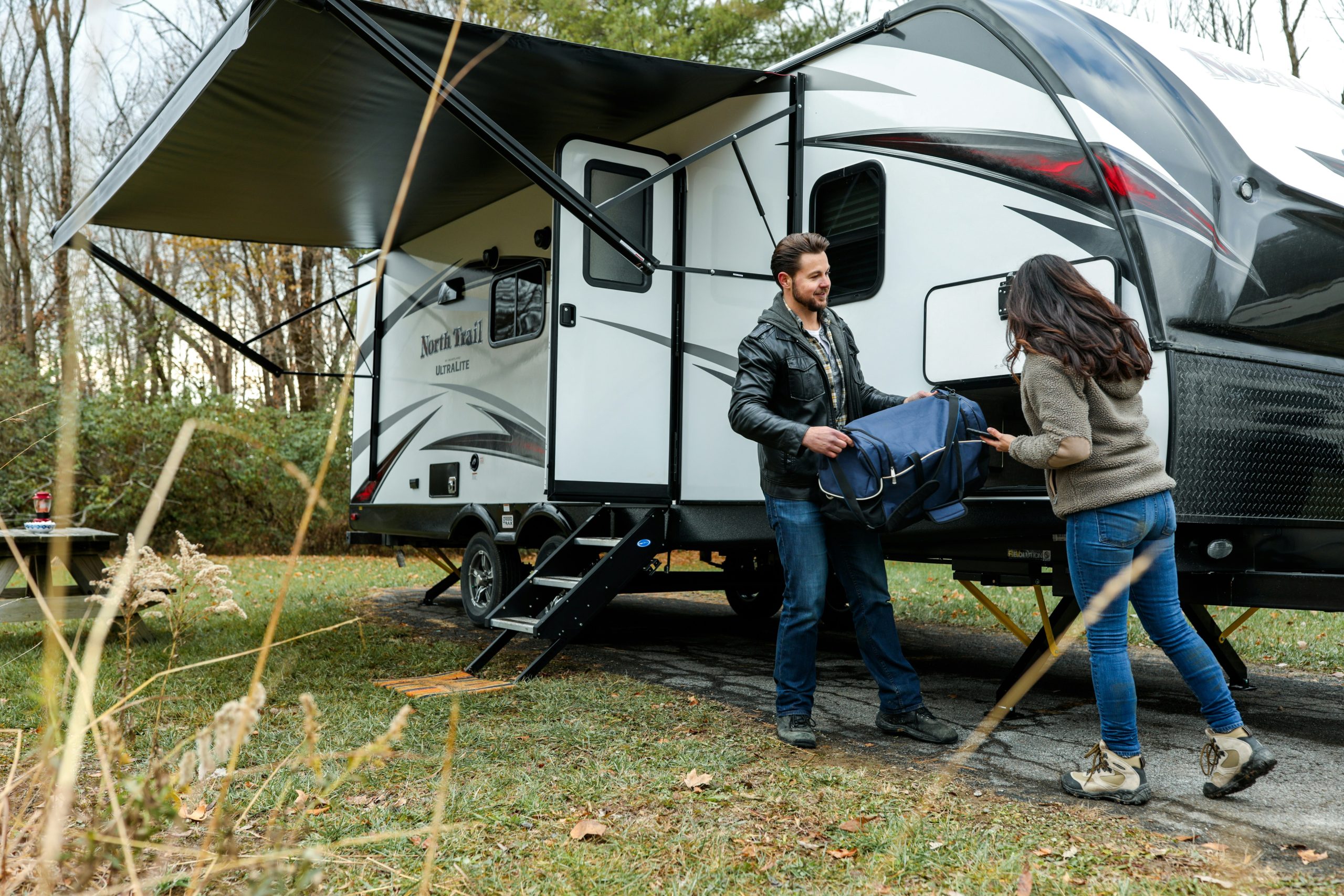
5. Pack light.
Remember, it’s an RV, not a UHaul. We all know you’re a whiz kid at Tetris and nobody can pack in every last “necessity” quite like you, but you want to try to maximize and prioritize space. Pack only your essentials to keep your RV space manageable. Make a checklist to ensure you don’t forget anything crucial like a flashlight, first aid kit, appropriate clothing, sunscreen, and insect repellent.
6. Hydrate!
Drinking plenty of water is crucial, especially in the summer heat. It’s happened to the best of us: You get busy hiking, fishing, yard games, or trying to pick up a new hobby like crocheting scarfs, and all of a sudden, you look up, and you’ve got a dry mouth and a dehydration headache. That’s no way to spend your trip in the great outdoors. So here’s how you combat this parched pitfall.
Bring more water than you think you’ll need and have a plan for refilling if necessary. Dehydration can sneak up on you, so be sure to drink plenty of water throughout the day to keep ahead of the game. The more active you are or the hotter it is, the more water you should consume.
So, how much water should you be drinking? The amount you’ll need depends on factors like temperature, humidity, altitude, and activity level. As a general rule, aim for at least 2-4 liters of water per person per day (0.5-1 gallon/day).
Here are a few ways to make keeping hydrated easier:
- Eco-friendly solutions: If you want to pack extra light, bring a water filter and purifier bottle like this one! Use it fur daily outdoor adventures, and leave the water bottles in the camper.
- You can even bring along a water filter straw like this one.
- Space-saving: collapsible water bottle
Be Mindful of the Brews: Both alcohol and caffeine have diuretic effects, meaning they can increase urine production and contribute to dehydration. Limit your consumption of alcoholic and caffeinated beverages, especially in hot weather.
Replenish Electrolytes: Boost your hydration with electrolyte drinks, food, or additives. Some great examples of electrolyte-rich options are: coconut milk, orange juice, cow’s milk, bananas, pickles, spinach, and if you want to make it easy pick you up some Liquid IV to mix in your water.
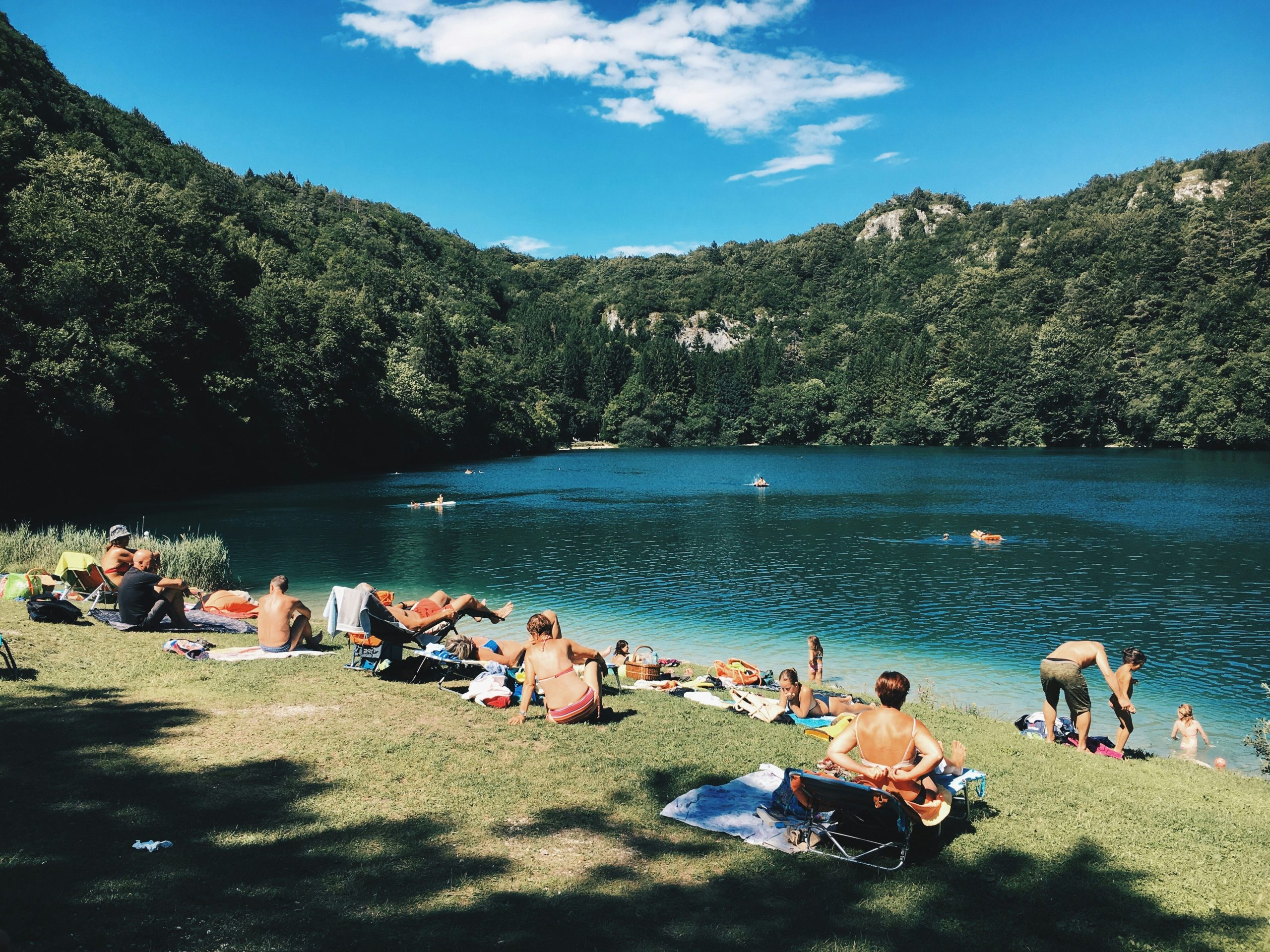
7. Protect yourself from the sun.
Aside from dehydration, the sun also poses another threat: UV rays, aka sun-scorched skin. Unless you want to spend your last day of the trip lying in a tent while a kind soul helps you with aloe vera lotion, use these precautions to help keep you healthy and happy.
Apply sunscreen with a high SPF, wear sunglasses, and sport a hat to shield yourself from harmful UV rays. Seek shade during the hottest parts of the day – typically between 10 a.m. and 4 p.m.
Pro-tip for staying cool: Bring a portable battery-powered misting fan to keep cool during the day and set up a shade shelter or canopy over your campsite to provide relief from the sun.
8. Be mindful of wildlife.
The great outdoors is so great because you are out in the wild. The connection to nature and all that it has to offer is rejuvenating and inspiring. If we want to continue having a great outdoors, we need to make sure that we are keeping the wild things wild and keeping ourselves safe.
If you’re out, so are all the critters that call the great outdoors home! Store food securely to prevent attracting animals to your campsite. Be aware of bears, snakes, insects, and other creatures that may be more active during warm weather.
Pro-Tip: If your RV doesn’t have adequate storage, get yourself a trusty grub tub—a spacious plastic container with a lid for storing utensils and cooking gear. Make sure your grub tub includes waterproof matches or a fire starter for igniting the camp stove. When it’s time to clean up, pack biodegradable items like dish soap, sponges, and fresh rags.
Bonus Pro-Tip: Some campsites provide food storage lockers or bear canisters, so be sure to check their rules before you go.
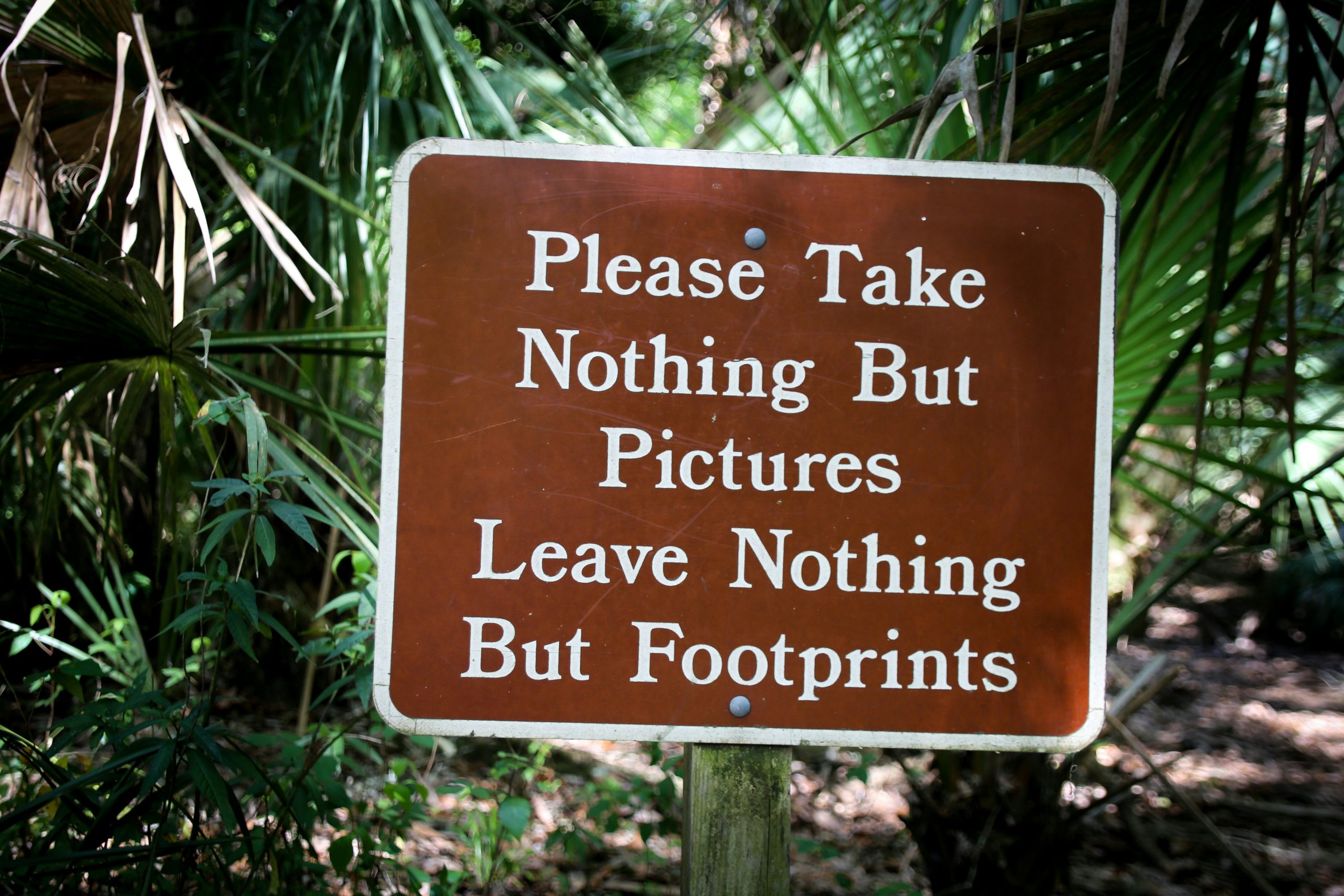
9. Leave no trace.
A good life rule whether camping or not is to leave everything better than you found it. Similar to watching out for our furry and feathered friends in nature, you also need to be mindful that their home is left virtually untouched. When you “Leave no trace”, you’ll ensure that this spot is beautiful for years to come.
It’s imperative that you leave everything better or the same as you found it for every part of your trip from the campsite to the hiking trail. Be sure to pack out all trash, including food scraps and biodegradable items. Follow designated trails and avoid damaging vegetation while hiking.
10. Plan out your activities.
You may be a seasoned veteran of camping or a first-timer. Either way, you want to make sure you enjoy your time. It would be awful to find out after your trip that you were a 30-minute hike away from a picturesque waterfall, but you never went. So be sure to do some research on where you’re headed.
When researching, look for nearby hiking trails, swimming spots, or other outdoor activities to enjoy during your camping trip. When you’re not out and about, you’ll want to have some things to do at your campsite. It’s best to bring games, books, or other entertainment for downtime.
11. Stay safe.
Above all, you want to keep your good time in nature, a good time. The best way to do that is to make sure you are prepared and ready to have a safe time. A great precaution is to know where the park ranger is and how to reach them. Also, consider having a satellite phone for emergencies. Many campsites are beyond even roaming range – which is great for unplugging and relaxing but you’ll also want to be able to connect to help quickly in a worst-case scenario.
Accidents happen and even if you don’t have an injury or need, you never know if you’ll come across someone who may need basic help. Familiarize yourself with basic first aid procedures and bring a well-stocked kit.
Pro-tip: It’s best practice to let someone know your itinerary and expected return time, especially if you’re traveling on your own.
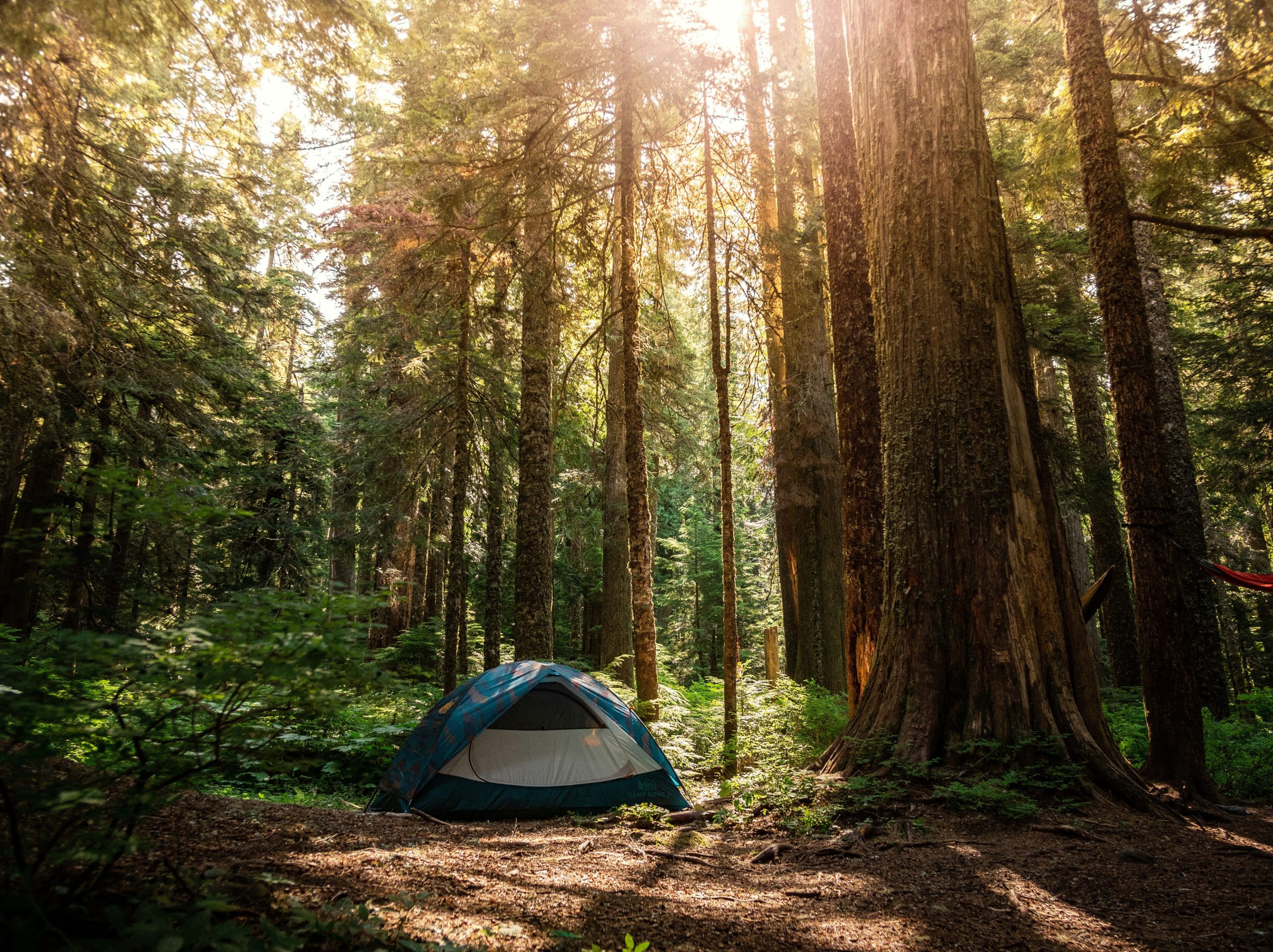
While these are just a handful of ways to get the most out of your camping adventure, what matters most is who you get to share the adventure with. Be sure to take care of these items ahead of time so you can spend more time making lifelong memories.
The post 11 Camping Tips For This Summer appeared first on RV.com.
Source: https://www.rv.com/lifestyle-travel/11-camping-tips-for-this-summer/

